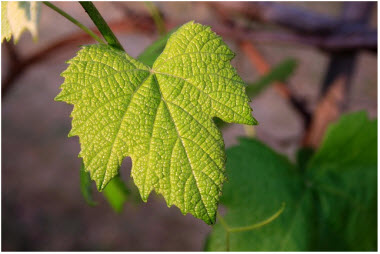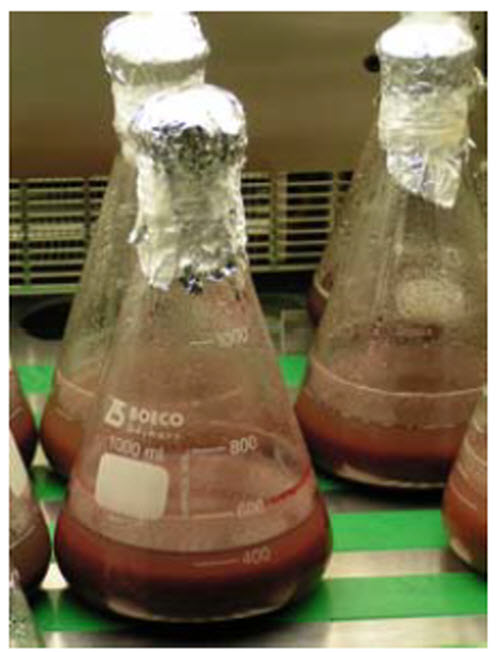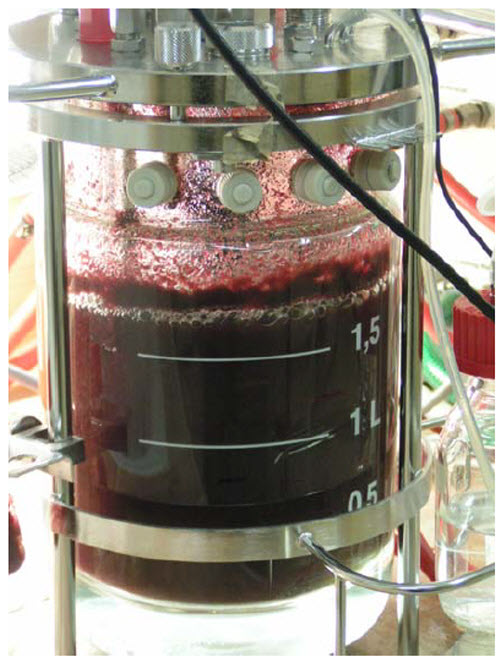Can we help you?
Contact us

Can we help you?
Contact us

Thank you for contacting us
Your form has been submitted successfully Our team will contact you again as soon as possible.
Whooppss...!! An error has occurred
Try sending later or write an email directly to areaempresas@ua.es

 PATENTED TECHNOLOGY
PATENTED TECHNOLOGY
INFO
SHEET
DOWNLOAD
EXECUTIVE
ABSTRACT
CONTACT DETAILS: Research Results Transfer Office-OTRI
University of Alicante
Tel.: +34 96 590 99 59
Email: areaempresas@ua.es
http://innoua.ua.es
The Department of Agrochemistry and Biochemistry of the University of Alicante in cooperation with the department of Plant Biology of the University of Murcia has developed a biological process to produce high levels of pure trans-resveratrol in-vitro from grapevine cell suspensions. Resveratrol is a natural substance with beneficial effects on health due to its antioxidant and anticancer properties.
This technology could be of interest for pharmaceutical and agrofood industries since it represents great innovations compared to the current production of resveratrol.

Resveratrol is a phytoalexin whose synthesis occurs in grapes, and in consequence, it can be found in grape products such as wine and musts and by-products. Resveratrol has been recognised as a natural substance with many beneficial effects on health due to its antioxidant and anticancer properties. In consequence, foods and beverages which contain resveratrol are considered as healthy. Low-resveratrol diets can be supplemented by pills containing some milligrams of this natural polyphenol. Nowadays, these pills are manufactured and commercialised under several brand names. These consist of a root extract of the Chinese medicinal plant Polygonum cuspidatum whose purity may range from 10%-99%. Unfortunately, the amount of resveratrol in grapes is very low compared to the Polygonum cuspidatum roots. This makes unfeasible the use of grapes as natural source of high purity resveratrol.
The Department of Agrochemistry and Biochemistry of the University of Alicante is working for several years in the production of resvetratrol in-vitro from grapevine cell suspensions in co-operation with the Department of Plant Biology of the University of Murcia. Like grapes, grapevine cell suspensions are able to produce a peak of resveratrol in response to elicitors. The resveratrol is mainly synthesised as resveratrol glycoside, the so called piceid, which stays in the cell to relatively low levels (0.015 mg/fresh g ≈ 0.47 mg/dry g). The amount of free resveratrol secreted by cells is even lower.
In this sense, the research department has investigated the grapevine suspension system as a potential alternative to resveratrol production. Some laboratory tests have been carried out with very interesting results. It has been found some particular conditions in which high levels of pure free isomer trans-resveratrol have been produced by the cells. In particular, at levels as high as 4.5 mg/fresh g (≈ 128.6 mg/dry g) in the spent medium. As compared to blanks no other compound synthesised by cells appears in the extracellular medium. After several trials, the research department has the know-how to produce high levels of pure trans- resveratrol in-vitro from grapevine cell suspensions at laboratory scale.
Bio-production of resveratrol in-vitro has several important advantages in comparison with the extraction from plant tissues:
- Independence of plant supplying due to the seasonal fluctuations, climate, production by third countries, etc.
- Raw material stocks are not needed
- With the aim of increasing the production efficiency, cell suspensions can be improved faster and cheaper than traditional plants by means of genetic technology or genetic engineering.
- Cultures can be scaled-up for the production of resveratrol in batch mode or continuously.
- It is an environmentally friendly technology since the biological process do not generate contaminants.
- Biological process have a better social image than the chemical ones.
- A high degree of purity can be obtained with this biological process. Simple dehydration of the culture broth yields trans- resveratrol preparations of more than 90% purity.
- Raw material to produce trans- resveratrol are common and cheap. Grapevine cell suspensions can be grown on very common substrates containing sugar, salts and vitamins.
- There is no need to feed any specific precursor of resveratrol during the biological process.
Research phase at laboratory scale has finished with successful tests and scaling up is being carried out. Pre-pilot plant tests in bioreactors have been also successful. At the moment scaling up in a pilot plant is being set up with good results.
The technology could be of interest for companies belonging to the followings sectors: Biotechnology, Medicine, Health, Nutritional products, Pharmaceutical products, Fine chemicals, Food products (animal, human), Beverages.
The Department of Agrochemistry and Biochemistry of the University of Alicante has the know-how to produce high levels of pure trans- resveratrol in-vitro from grapevine cell suspensions at laboratory scale. It is seeking for:
- Partners willing to give further research or development support with the aim of establishing a research project, licence agreement or joint venture agreement. It has no preferences for any country.
- R&D departments of any company interested in carrying out feasibility studies on the industrial application of this technology.
National patent granted and PCT applied (European countries + Australia, Canadá, EEUU and Japan).
Biology
Molecular Biology and Biotechnology
Medicine and Health
Carretera San Vicente del Raspeig s/n - 03690 San Vicente del Raspeig - Alicante
Tel.: (+34) 965 90 9959




